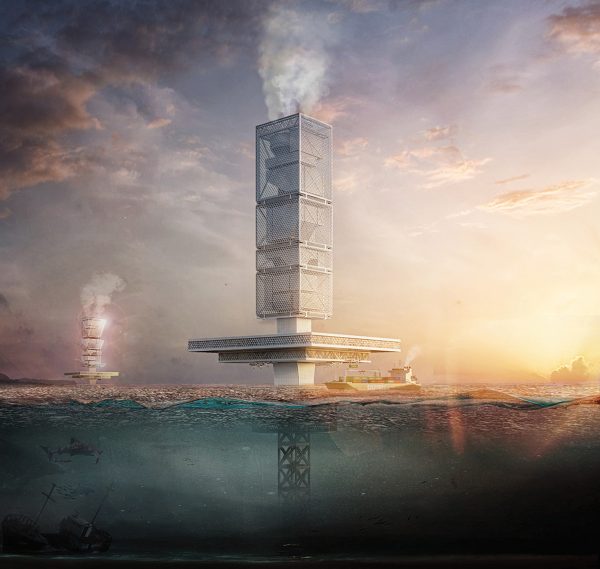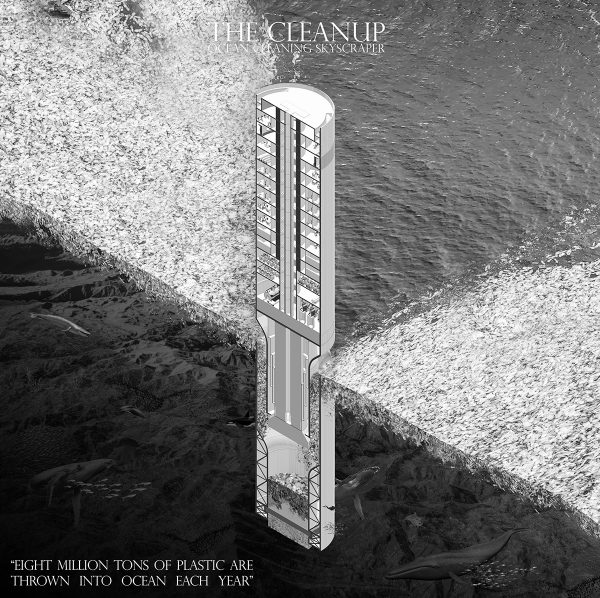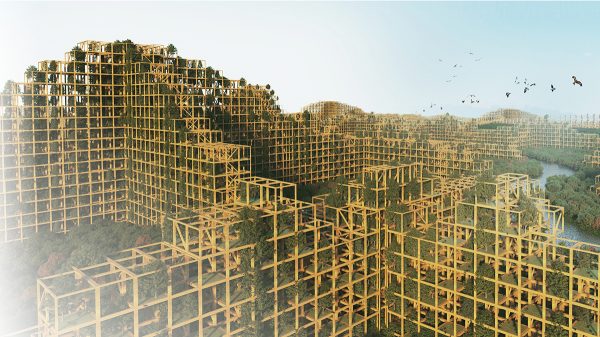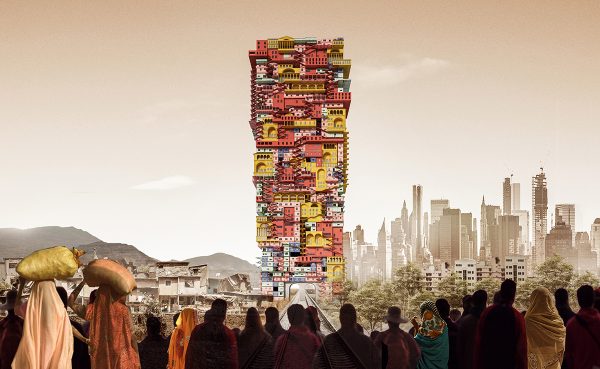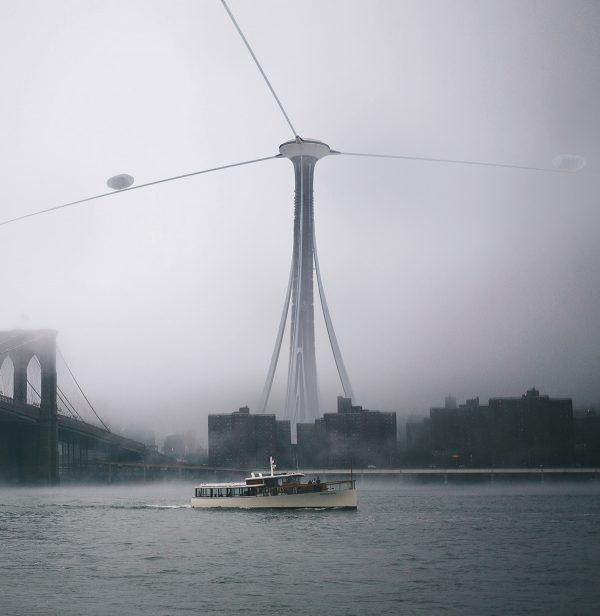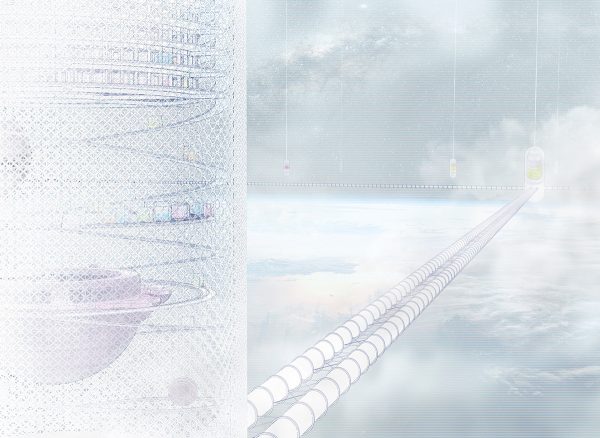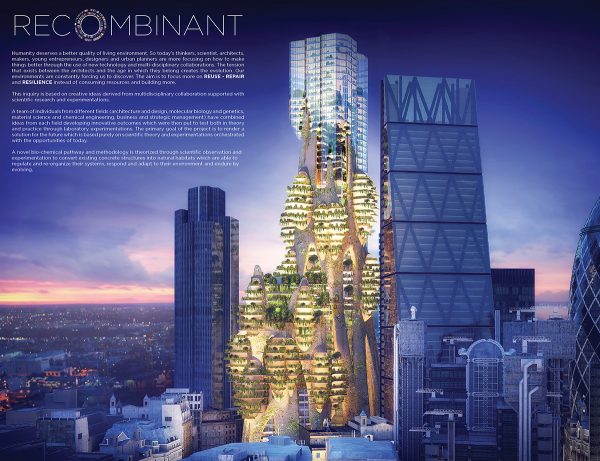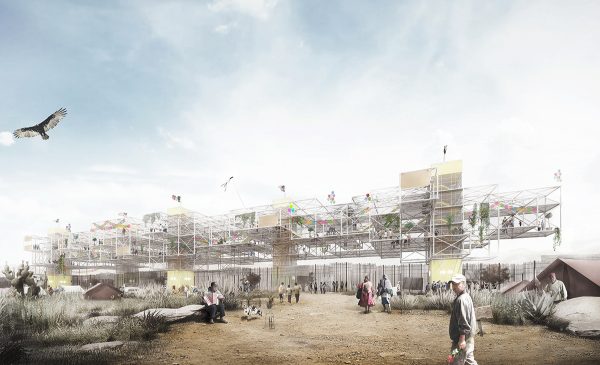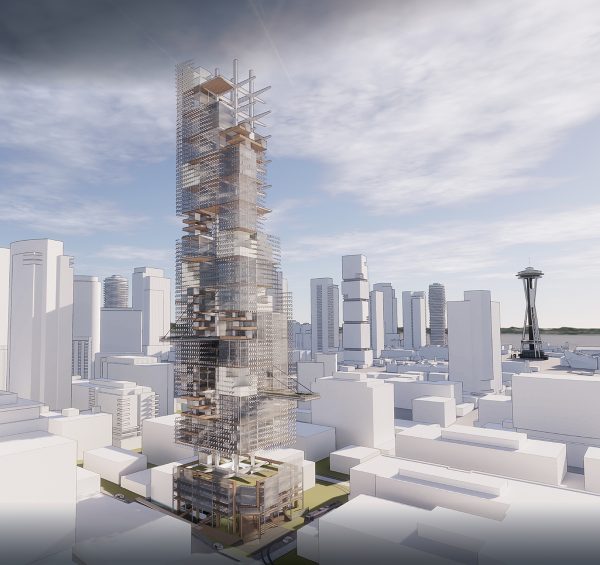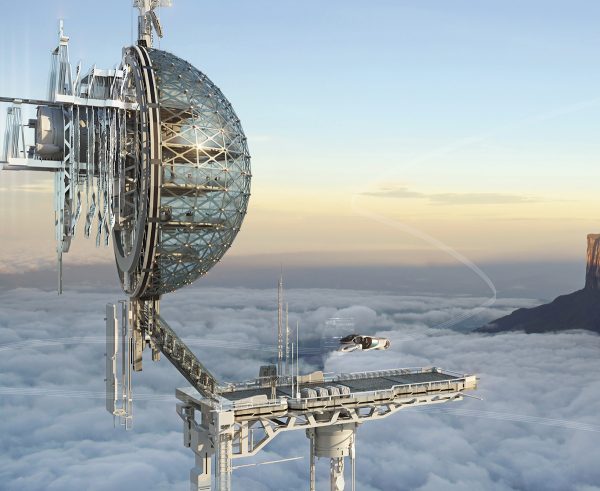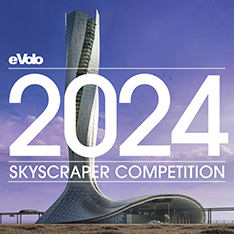Honorable Mention
2019 Skyscraper Competition
Honglin Li
United States
FILTRATION is a waste-management and waste-to-energy power plant skyscraper located in the “Eighth Continent”- it often refers to the Great Pacific Garbage Patch, which is a collection of marine debris in the North Pacific Ocean. It spans waters from the West Coast of North America to Japan. The size of the patch is estimated to be 8.1% of the size of the Pacific Ocean, twice the size of Texas, thrice the size of California, the rubbish layer is on average 100 feet thick. The Great Pacific Garbage Patch is not the only vortex—it’s just the biggest. The Atlantic and Indian Oceans both have trash vortexes. Even shipping routes in smaller bodies of water, such as the North Sea, are developing garbage patches.
FILTRATION essentially is a highly modularized prefabricated waste-management and waste-to-energy power plant megastructure that contains several Material Recovery Facilities (MRF) and Water Treatment Plants (WTP) to recycle the floating garbage continent and clean the seawater in all levels from the different ocean across the world. The innovative not only for self-sustaining but also helping resolve the world energy crisis for this coming century. Read the rest of this entry »

